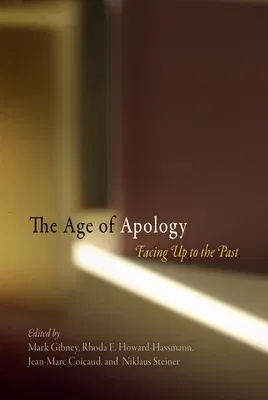The Age of Apology: Facing Up to the PastPaperback, 19 November 2009

Qty
1
Turbo
Ships in 2 - 3 days
In Stock
Free Delivery
Cash on Delivery
15 Days
Free Returns
Secure Checkout

Part of Series
Pennsylvania Studies in Human Rights
Part of Series
Pennsylvania Studies in Human Rights (Paperback)
Print Length
344 pages
Language
English
Publisher
University of Pennsylvania Press
Date Published
19 Nov 2009
ISBN-10
0812220870
ISBN-13
9780812220872
Description
Product Details
Book Format:
Paperback
Country of Origin:
US
Date Published:
19 November 2009
Dimensions:
22.35 x
14.73 x
2.03 cm
ISBN-10:
0812220870
ISBN-13:
9780812220872
Language:
English
Location:
Philadelphia
Pages:
344
Publisher:
Weight:
521.63 gm